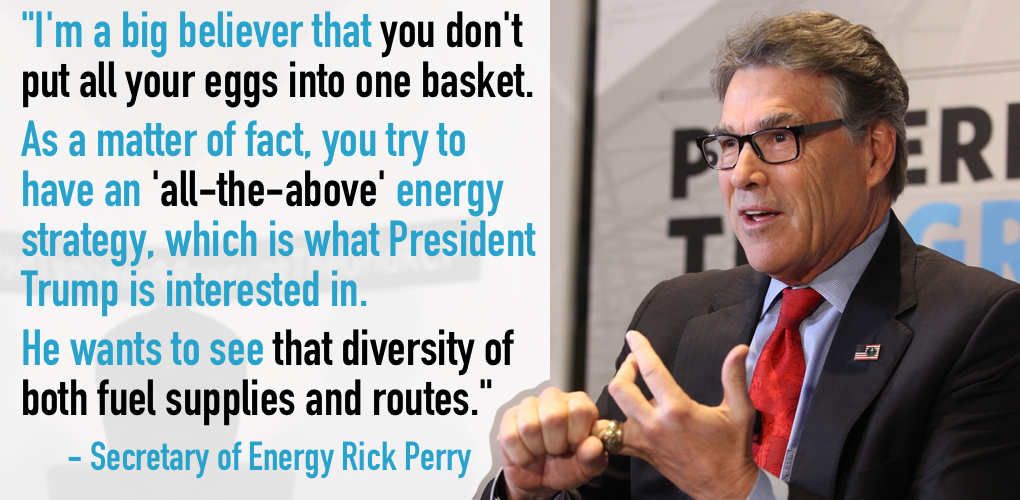
A Clear Call for Action on Grid Reliability
Last Friday, Real Clear Politics hosted an event on the future of the U.S. electricity grid, or rather the challenge of maintaining grid reliability as the nation’s electricity mix undergoes dramatic change. The event, sponsored by NMA and America’s Power, brought together energy experts and officials on the frontline of the issue, including the Secretary of Energy, Rick Perry. Despite a range of voices, there was universal agreement that the accelerating loss of the nation’s baseload power plants poses a huge threat, one that deserves clear-eyed analysis and decisive action.
Congressman David McKinley, R-WV, pointed to the closure of fuel-secure, coal plants as particularly troubling. He said, “We’re seeing more and more coal fired power plants [retire] – we’ve lost 40 percent since 2010. That puts us more in jeopardy… We’ve got to find a way to keep our fleet existing, extended or add to it.”
He emphasized, along with several other speakers, including Congressman Larry Bucshon, R-IN, that on-demand, baseload power is the foundation for the electricity grid. The loss of that foundation – as the nation attempts to integrate intermittent wind and solar power and manage new threats, including the growing challenge of cyber security – jeopardizes the entire system.
Governor Matt Bevin of Kentucky reminded the audience of the irreplaceable role that coal generation continues to play in providing reliability during deep freezes. He pointed to the recent Polar Vortex and said coal generation, particularly in the Midwest, came to the rescue to ensure an adequate supply of power when other energy sources could not. Addressing the growing specter of cyber threats coupled with the loss of dispatchable, fuel-secure coal power, he said, “People have no idea how vulnerable our grid truly is.” He continued, “We run a tremendous risk in America of not having the ability to provide the energy that we, as a society, are demanding… Its reliability as much as anything else. I think we are oblivious to the potential detriment facing us.”
Secretary Perry was no less concerned about the threats ahead. While he’s encouraged by growing U.S. energy production and the increasing importance of U.S. energy in global markets, the loss of baseload power and growing reliance on just-in-time fuel delivery is troubling. He said, “I’m a big believer that you don’t put all your eggs into one basket. As a matter of fact, you try to have an ‘all-the-above’ energy strategy, which is what President Trump is interested in. He wants to see that diversity of both fuel supplies and routes.”
Secretary Perry leaned in on the need for fuel diversity and the irreplaceable role of uninterruptible, fuel-secure generation. “A diversity of fuels, a diversity of routes, a diversity of supplies, all of that makes a lot of sense to me.” He continued, “One of the reasons it was important for us to continue to have a civil nuclear program, one of the reasons for us to have those other foundational fuels, coal, hydro, they are uninterruptible, and I think to have that uninterruptible fuel supply as your foundation is very prudent for this country.”
He echoed his fear of putting too many eggs in one basket and losing our energy diversity this week when addressing the Senate Energy and Natural Resources Committee. Speaking to the threats to the nation’s energy infrastructure, he said, “Right now, we are blessed with an abundance of natural gas — and thank God we got that — but you never want to have that phone call that comes in and says that we have people losing their lives in parts of the state because we weren’t willing to pay for a diversity to make sure we have an ‘all-the-above’ energy strategy.”
To learn more about the challenge at hand, watch our video below or click here to watch the Real Clear Politics event in its entirety.
- On April 4, 2019
